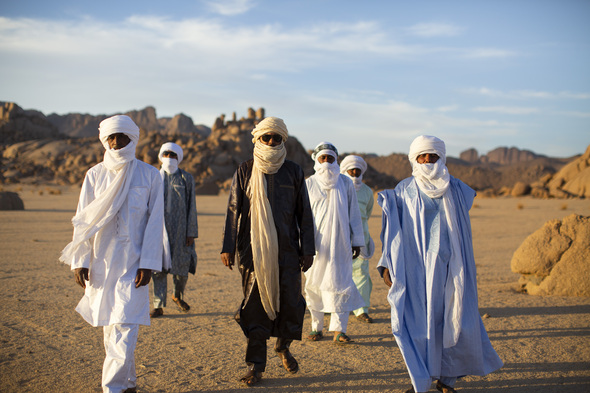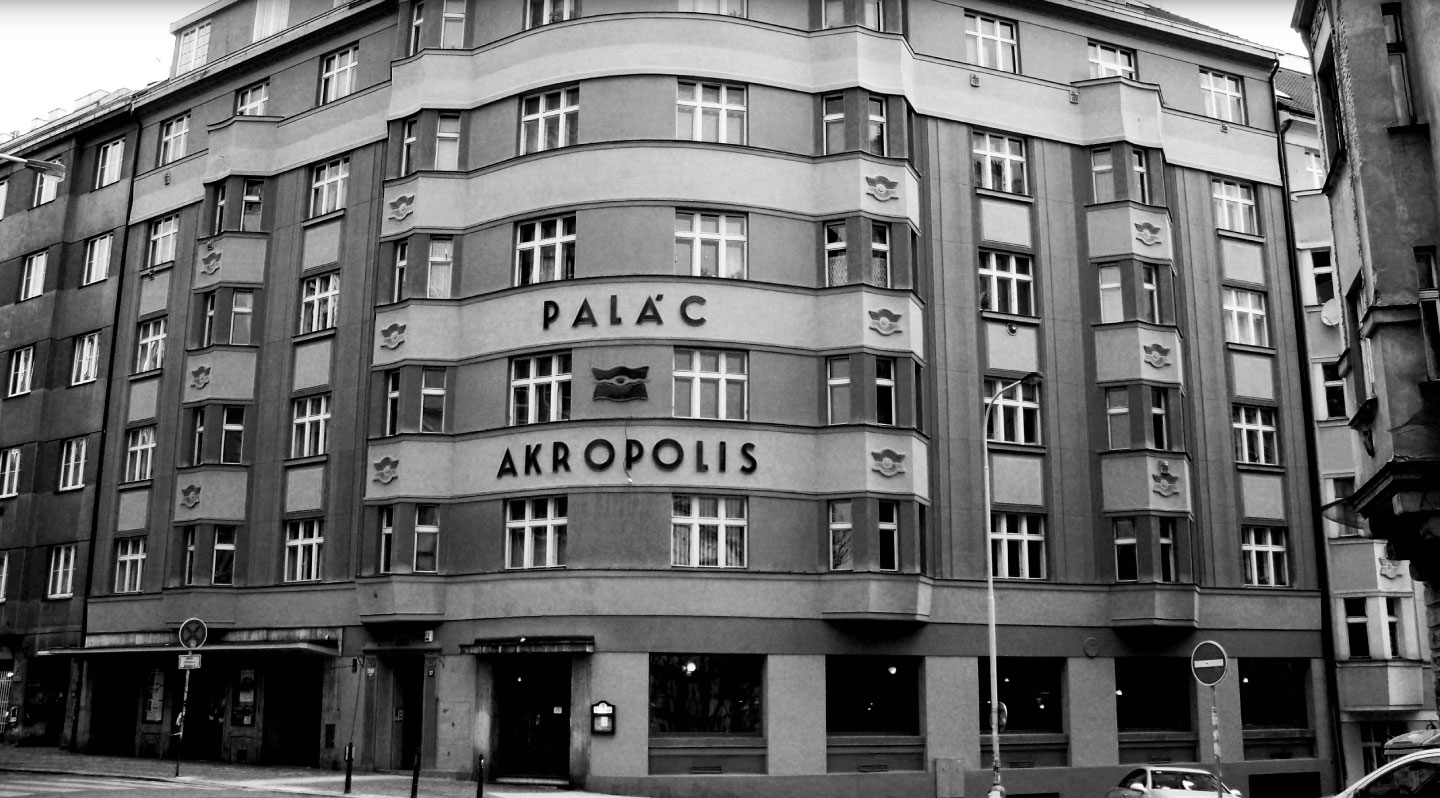|
Thursday 5. 9.
info The veterans of desert blues have influenced generations of African musicians and are the most famous African band today. The electric nomads from the Sahara are returning to the Czech Republic after a long hiatus. Like blues and reggae, Tinariwen's music is an expression of cultural identity, a testament to suffering and the power to overcome it through music. „When I first heard them, I found the music I had been searching for my whole life,“ Robert Plant said of these electric nomads from the Sahara. The band regularly performs at the world's biggest festivals, winning a Grammy Award for their 2011 album „Tassili“ and the prestigious BBC World Music Award. At the Montreux Jazz Festival in Montreux, Switzerland, they jammed with Carlos Santana, who said of them, „I can hear the roots of Muddy Waters and Jeff Beck. That's where the music comes from.“ The band arrives with last year's „Amatssou“ album, produced by Daniel Lanois, producer of Bob Dylan, Neil Young and U2, among others, who even plays on the record. „They grew up in exile, their school was conflict, they found refuge in the underground, where they gained the stamp of legend. Tinariwen are a band that generations of Western rock bands could only become in their dreams.“ The Guardian The Sahara looks like a wasteland, but the caravans that crossed it played as important a role as the sea routes or the merchants travelling the Silk Road between Europe and Asia. For centuries, Saharan trade was in the hands of the Tuareg, an ethnic group that not only mastered the art of survival but also the art of communication. As caravans formed the link between black Africa in the south and the Arabs and Berbers in the north, the music of the Tuareg was well understood on both sides of the desert. Life on the road requires mobile equipment; instead of huge drums, we hear the clapping of palms. The result is music that is expressive and mysterious with a minimum of instruments, much like a rural version of the American blues. Tinariwen have continued this tradition with sparse electric guitar ornaments and a deep feel. It's a testament to the outlaws whose desert homeland has been carved up by the newly created frontier. When you walk into a North African market and close your eyes for a moment, you are surrounded by a backdrop of seductive scents, enticing and unfamiliar notes. Time stops, somewhere behind the chaotic mix of voices you hear a guitar, a hypnotic drum beat joins in, and although you don't understand the lyrics, you get the same feeling as when you first heard the blues. These stories tell of both suffering and the power to defy it. While the roots of suffering in the blues go back to the slave era, the scars are very fresh for the Tuareg. When African countries gained independence fifty years ago, an era of conflict and oppression paradoxically began for them. The Sahara, their home territory, was divided by impenetrable borders and minefields. The Tuareg found themselves outlaws, their revolts bloodily suppressed. In the midst of the traumas of war, Tinariwen were formed, the members met in a refugee camp and absorbed Bob Marley's music, punk rock and electric guitars alongside traditional inspirations. The Tinariwen band was also at the birth of the now legendary Festival in the Desert, which, in addition to a musical showcase, also served as a tribal gathering of Tuareg from different parts of the Sahara. The festival took place between 2001 and 2009 in various locations in the Sahara in northern Mali. However, the security situation in the region deteriorated rapidly, with Islamic terrorists operating in the area, kidnappings of tourists and the last edition of the festival taking place in 2010–2012 near the city of Timbuktu under tight security measures. The situation was complicated by the fact that violent events also involved feuding Tuareg groups, but the musicians themselves were the ultimate victims of the clashes. In August 2012, the militant Islamist group Ansar Dine declared that it would eradicate Satan's music from the area it controlled and replace it with verses from the Koran, as required by Sharia law. In northern Mali, in the oasis of Kidal, once the home town of Tinariwen, a seven-man squad armed with AK47 Kalashnikovs marched to the family home of a local musician. Fortunately, he wasn't home, but his sister heard the terrible news: „If he ever shows up here, we'll cut off all his guitar-playing fingers.“ The gunmen then took the guitars, amplifiers, speakers, microphones and drum kit out of the house, doused them with petrol and set them on fire. Tinariwen was also targeted in the campaign; during the January 2013 attack, band member Abdallah Ag Lamida was kidnapped while trying to save his guitars, but was later released. The episode also marked the trajectory of the group, who temporarily moved from the conflict zone to the United States, and recorded their sixth album, Emmaar, in the desert setting of Joshua Tree National Park. |
|









